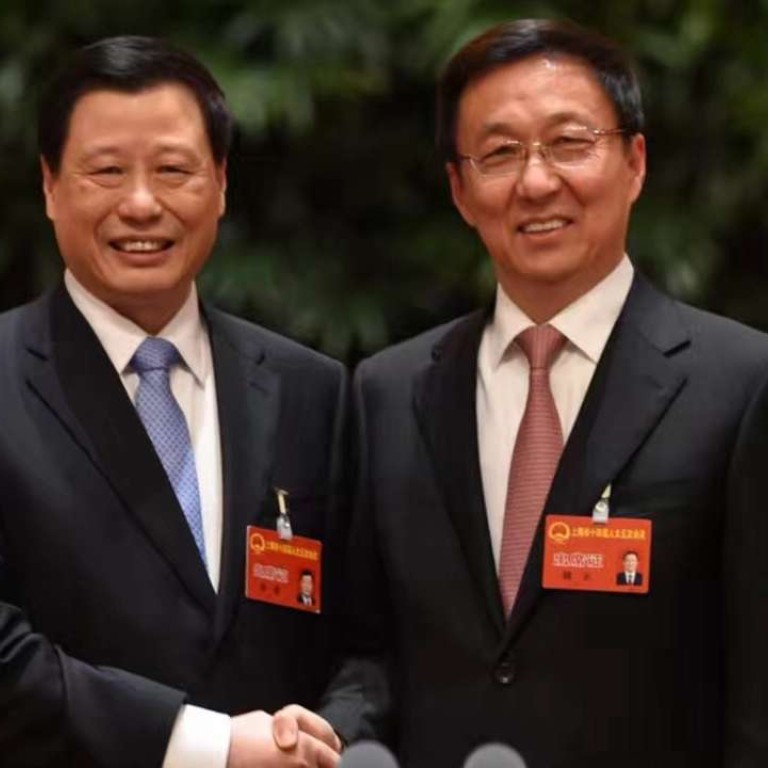
Shanghai’s new mayor leads off with free-trade zone commitment
Ying Yong tries to underscore his economic credentials after his official appointment to the municipality’s second-highest job
Shanghai’s new mayor tried to strike a confident and optimistic note in his public debut on Friday, giving assurances that the city would press on with financial reforms in its free-trade zone.
In his first media conference, just hours after the city’s legislature approved his appointment, Ying Yong, 59, a close aide of President Xi Jinping, also stressed that he had the skills to steer Shanghai through troubled economic waters.
He said he was determined to drive the city towards its goal of becoming an international financial centre.
Most of Ying’s career has been in law enforcement and the judiciary, with stints at the helm of Zhejiang and Shanghai’s higher courts.
His two-hour press conference was a stark contrast to the style of his predecessor, Yang Xiong, who did not face the media when he was appointed three years ago.
Ying expanded on policy directions, using figures to make a point and seldom referring to his prepared notes.
But he offered few concrete details when he bluntly rejected criticism that the city had been slow in developing its free-trade zone. “We have not stopped liberalising the financial sector,” he said, adding that the municipality would press ahead with deregulation to attract greater capital flows through the much-hyped zone.
The zone was launched in 2013 as a test bed for free-market policies to be replicated across the country. But attempts to free up foreign-exchange controls are understood to have been derailed by Beijing’s efforts to staunch capital outflows to shore up its currency.
Ying said the authorities were looking into new policies for the zone, including a “negative list” that would define business activities for overseas financial institutions in the zone.
The new mayor spoke on a wide range of topics including property, Disneyland, education, transport, reforms and education.
“We will create new vitality in economic activities through deepened reforms,” Ying said.
“We will unswervingly push the development of the free-trade zone and an innovation centre for science and technology.”
Ying worked under Xi while Xi was Zhejiang’s Communist Party chief from 2003-2007. On his climb up the political ladder, Ying took on a series of jobs related to public security, the judiciary and personnel – prompting sceptics to question his ability to handle economic affairs.
He was nominated an executive vice-mayor of Shanghai in September.
He is now the No 2 official in Shanghai in terms of hierarchy, behind Shanghai party boss Han Zheng.
Ying’s promotion to mayor comes ahead of this year’s 19th national party congress, which will be the backdrop for a major reshuffle of the top leadership.
Ying’s appointment also marks the completion of mayoral reshuffles in the country’s four centrally administered municipalities.
Cai Qi, 61 and also a close aide of Xi, was named the head of the Beijing government in October; while Wang Dongfeng, 58, became Tianjin’s head in December. Zhang Guoqing, 52, a former executive of defence contractor China North Industries Group, became Chongqing’s chief in November.

